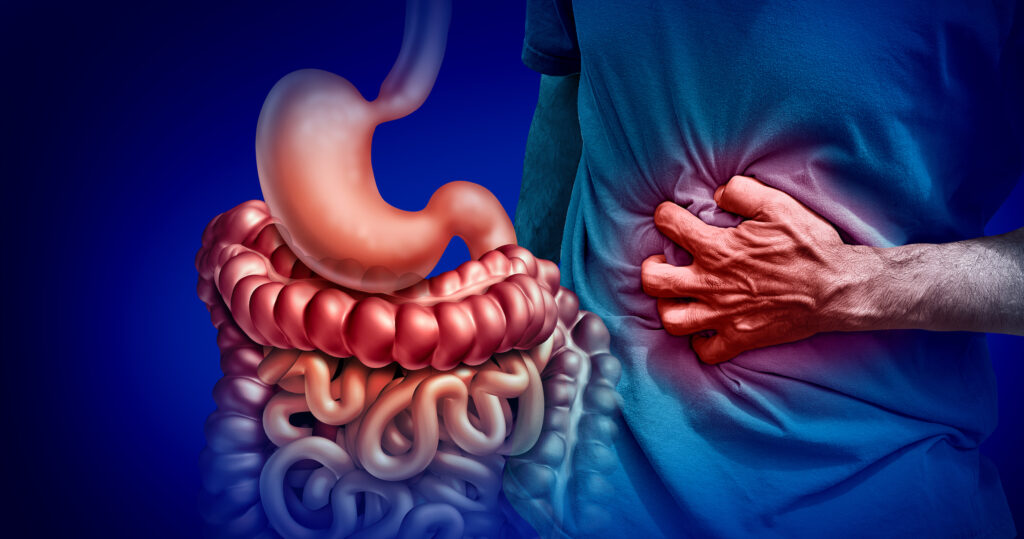Scientists have identified a species of bacteria that may drive the progression of ulcerative colitis (UC) by producing a toxin that kills immune cells essential to maintain the lining of the intestine healthy. This research could open the door to new diagnostics and therapeutic approaches against a disease that is notoriously difficult to treat.
“Our findings highlight how microbes may contribute to UC pathogenesis and suggest that targeting bacterial virulence factors could be a therapeutic strategy,” write the authors of the study, published today in Science.
Ulcerative colitis is a type of inflammatory bowel disease (IBD) that progressively deteriorates the epithelial barrier lining the intestines, causing severe symptoms and leading about 25% of patients to undergo a colectomy. While multiple genetic and environmental factors are known to play a role in the development and progression of UC, its causes still remain unknown.
The study focused on tissue-resident macrophages in the gut, which represent the first line of defense against pathogens traveling through the intestine. Because of the important role these cells play in maintaining the integrity of the gut lining, the research team wanted to test whether macrophages residing in the intestine are compromised in UC.
“To protect the host against invading pathogens and maintain intestinal homeostasis, the gut harbors one of the largest populations of macrophages,” stated the authors. “In tissue samples from individuals with UC, we found that macrophages were depleted from areas of the colon that did not yet exhibit epithelial inflammation.”
These results suggest that the depletion of tissue-resident macrophages in the gut could be a driver of disease that appears before inflammation. Experiments in mice further confirmed that removing these macrophages made the colon more vulnerable to inflammation.
By examining fecal samples from UC patients, the researchers identified a species of Aeromonas bacteria that produces a toxin known as aerolysin. This toxin was found to kill macrophages without damaging epithelial cells, which led them to name the species MTB for macrophage-toxic bacteria.
Experiments in mice showed that infections with this bacterial species made UC symptoms worse, while mutant strains that did not produce aerolysin had no effect. Furthermore, neutralizing aerolysin with antibodies prevented MTB from inducing UC in healthy mice and improved inflammation symptoms in mice with an established disease.
Other bacterial species that also produce aerolysin, such as Aeromonas veronii, were not found to induce UC in mice, due to their inability to colonize their gut. The researchers hypothesize that MTB may have evolved to have enhanced colonization capacity, and that other bacteria might be involved in the development of UC using similar mechanisms.
An analysis of fecal samples from 117 IBD patients and 430 healthy controls found Aeromonas species in 72% of UC patients, while only 12% of healthy participants and 2% of patients with Crohn’s disease carried them. However, the team noted that their method did not distinguish the MTB species from other Aeromonas bacteria, highlighting the importance of developing a detection method specific to this species in future work.
Based on their findings, the team sees promise in the detection of MTB or aerolysin in stool samples as a diagnostic biomarker for UC. Additionally, this discovery could spearhead the development of new preventive and therapeutic strategies against the disease, including antimicrobial therapy or targeted neutralization of aerolysin.

